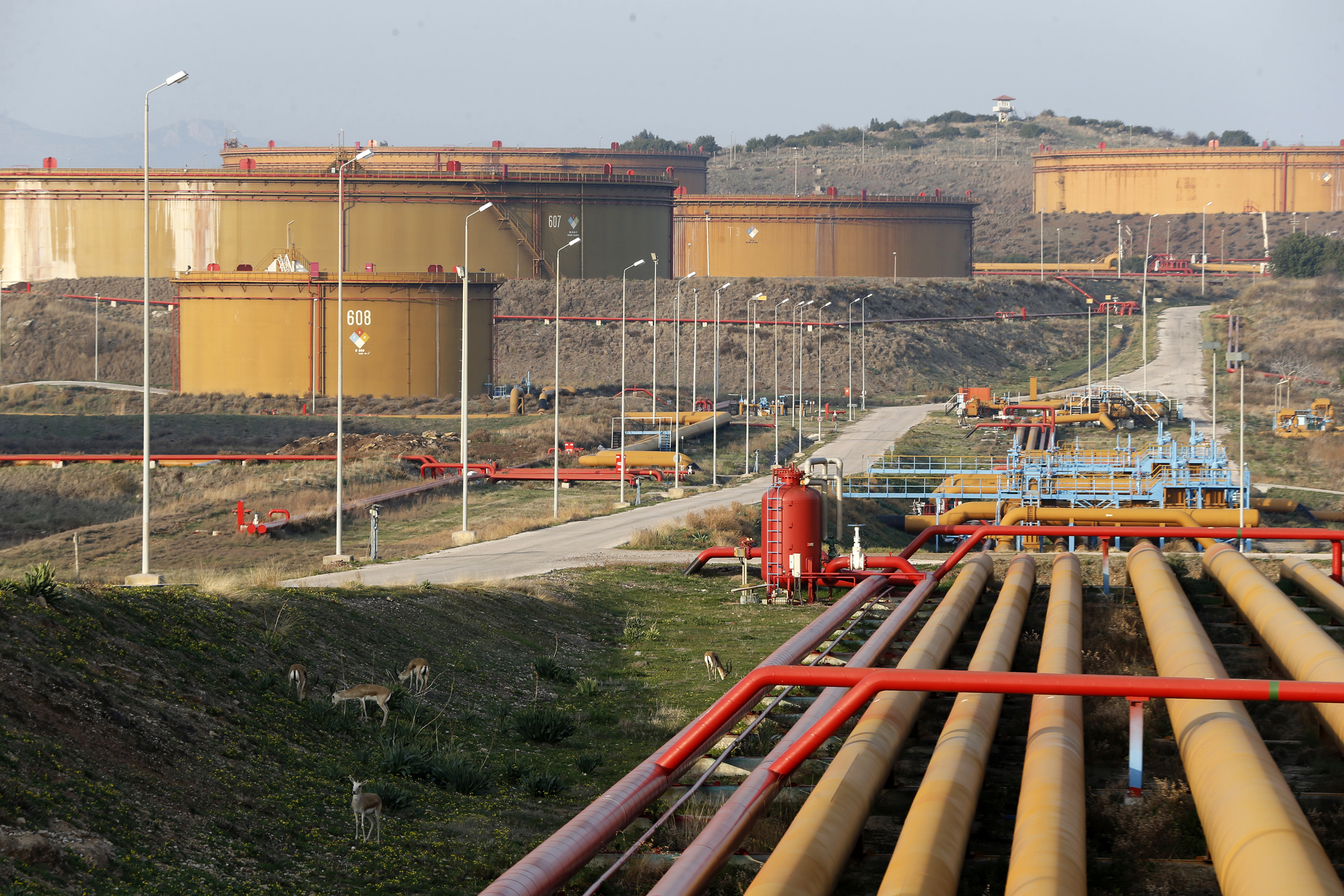S&P estimates impact of Türkiye quake on oil supplies from Azerbaijan

Global markets quickly responded to the quakes with a brief spike in oil prices, as the impact of the disaster triggered supply concerns
Seaborne crude exports from Azerbaijan and Iraq via the Ceyhan oil terminal averaged about 1 million barrels per day in January, according to S&P Global Commodities at Sea.
“On February 6, a pair of devastating earthquakes hit Türkiye and Syria, less than a year after Russia’s invasion of Ukraine. Beyond huge human losses, the earthquakes inflicted significant damage to critical infrastructure and disrupted domestic trade, mainly in Türkiye, with the potential for global impact.
Global markets quickly responded to the quakes with a brief spike in oil prices, as the impact of the disaster triggered supply concerns. Owing to a power outage and tank damage in the immediate aftermath of the earthquakes, operations were halted at the Ceyhan oil terminal in Türkiye, a major export route for refiners based in the Mediterranean. As a result, certain crude exports from Azerbaijan and Iraq were suspended,” reads the report.
Crude loadings have since resumed in the Ceyhan oil terminal after damage to the Iraq- Türkiye oil pipeline, one of the pipelines that passes through the earthquake zone, was repaired. The Baku-Tbilisi-Ceyhan pipeline, meanwhile, remained intact, and crude oil was being stored at the oil tanks in the Ceyhan hub, a spokesperson for operator BP told S&P Global Commodity Insights.
Global oil prices steadied a few days after the spike, and stock trading in Türkiye resumed February 15 after a brief pause.
Due to Türkiye’s important maritime position between the Mediterranean Sea and the Black Sea, the damage caused by the earthquakes is also impacting the shipping sector. Türkiye’s Iskenderun port, on the Mediterranean coast, suffered substantial damage from the quakes and a subsequent container fire, which brought operations to a standstill and affected shipments for global logistics companies such as Maersk.
"It's not yet known how long recovery efforts will take and when the port can undergo a full inspection of the damage. At this time, we are not accepting any new bookings to and from Iskenderun," Maersk said.
Steel production also halted in Türkiye’s earthquake-ravaged areas, given highway and port damage as well as electricity and natural gas flow cuts. Steel mills in the affected locations discontinued output and shipments following the quakes to conduct damage assessments and rescue efforts, with plans to restart production soon.
More than 30% of Türkiye’s steel production originates from large steel manufacturers in the earthquake zone, Veysel Yayan, general secretary of the Turkish Steel Producers' Association, told S&P Global Commodity Insights. As the mills are likely to remain shut for a while, scrap and steel pricing could be affected. However, reconstruction activities should lift steel demand and prices, sources told S&P Global Commodity Insights.
report.az
Seaborne crude exports from Azerbaijan and Iraq via the Ceyhan oil terminal averaged about 1 million barrels per day in January, according to S&P Global Commodities at Sea.
“On February 6, a pair of devastating earthquakes hit Türkiye and Syria, less than a year after Russia’s invasion of Ukraine. Beyond huge human losses, the earthquakes inflicted significant damage to critical infrastructure and disrupted domestic trade, mainly in Türkiye, with the potential for global impact.
Global markets quickly responded to the quakes with a brief spike in oil prices, as the impact of the disaster triggered supply concerns. Owing to a power outage and tank damage in the immediate aftermath of the earthquakes, operations were halted at the Ceyhan oil terminal in Türkiye, a major export route for refiners based in the Mediterranean. As a result, certain crude exports from Azerbaijan and Iraq were suspended,” reads the report.
Crude loadings have since resumed in the Ceyhan oil terminal after damage to the Iraq- Türkiye oil pipeline, one of the pipelines that passes through the earthquake zone, was repaired. The Baku-Tbilisi-Ceyhan pipeline, meanwhile, remained intact, and crude oil was being stored at the oil tanks in the Ceyhan hub, a spokesperson for operator BP told S&P Global Commodity Insights.
Global oil prices steadied a few days after the spike, and stock trading in Türkiye resumed February 15 after a brief pause.
Due to Türkiye’s important maritime position between the Mediterranean Sea and the Black Sea, the damage caused by the earthquakes is also impacting the shipping sector. Türkiye’s Iskenderun port, on the Mediterranean coast, suffered substantial damage from the quakes and a subsequent container fire, which brought operations to a standstill and affected shipments for global logistics companies such as Maersk.
"It's not yet known how long recovery efforts will take and when the port can undergo a full inspection of the damage. At this time, we are not accepting any new bookings to and from Iskenderun," Maersk said.
Steel production also halted in Türkiye’s earthquake-ravaged areas, given highway and port damage as well as electricity and natural gas flow cuts. Steel mills in the affected locations discontinued output and shipments following the quakes to conduct damage assessments and rescue efforts, with plans to restart production soon.
More than 30% of Türkiye’s steel production originates from large steel manufacturers in the earthquake zone, Veysel Yayan, general secretary of the Turkish Steel Producers' Association, told S&P Global Commodity Insights. As the mills are likely to remain shut for a while, scrap and steel pricing could be affected. However, reconstruction activities should lift steel demand and prices, sources told S&P Global Commodity Insights.
report.az